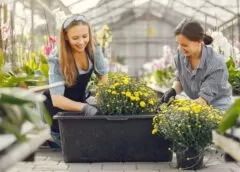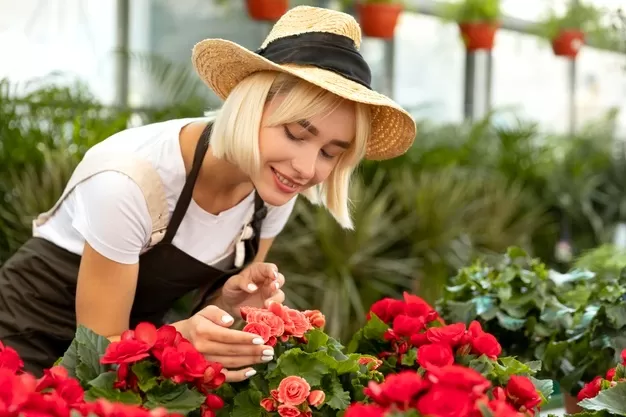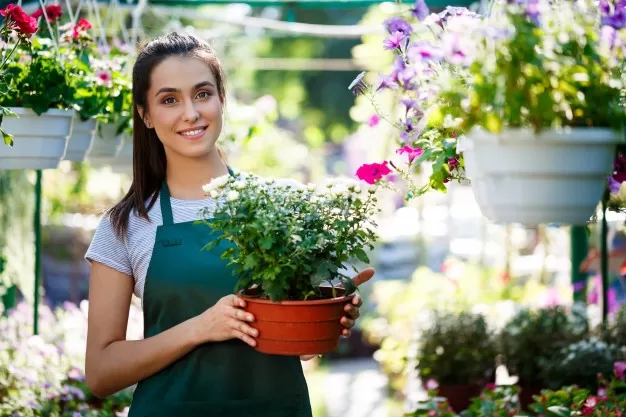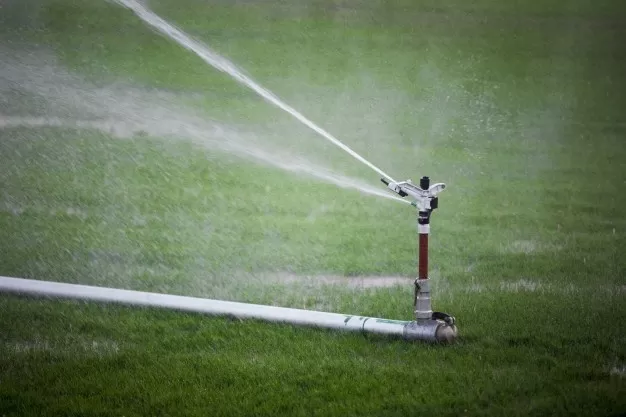Today, gardening is a trendy hobby and career that is emerging. The demand for products that come from grown plants and crops is numerous. Now is the time to enter into it. Here are some tips that you can use to get you started with your gardening plans.
Grow seasonings and kitchen herbs in your garden. Herbs are generally straightforward to grow and can even be made to thrive in a window box or indoor pot. However, these easy plants are costly to buy at the store. Growing them yourself can save you significant amounts of money.
Be realistic about the types of plants you can grow in your garden. If a particular plant has failed you in the past, don’t try it again. It would be best to have a suitable climate, soil, and sun/shade ratio for specific plants. If you don’t have it, no amount of effort will make those plants a success. Choosing realistically will increase your yield while decreasing your effort.
Attract butterflies and hummingbirds to your garden. Certain plants are beautiful to butterflies and hummingbirds due to their nectar. Hummingbirds tend to favor any flower shaped like a trumpet, especially if it is pink, red, or purple. Examples of these are honeysuckle, fuchsia, and monarda. Butterflies like flat, daisy-like flowers, such as chrysanthemums, asters, and coneflowers. Choose a sunny position, as both butterflies and hummingbirds appreciate the warmth.
The cooling weather of early fall signals the opportune time to plant seasonal edibles. This year, instead of using your regular clay pots to plant your kale and lettuce, use a pumpkin as the container instead! Once you’ve cut its top and scooped the insides out, spray the edges and inside with Wilt-Pruf to prevent rotting. Once you’ve done that, you can plant!
It is essential that you not forget to water your garden regularly, incredibly when hot. If your plants do not get enough water, roots stay near the surface, which can kill your plants or cause them to take even longer to grow. About an inch of water a week is sufficient.
Vegetable water makes an excellent fertilizer. Next time you boil or steam your vegetables to eat, set aside the cooking water. This water is chock full of nutrients and will provide your garden with an excellent, nutritious boost. Make sure the water is thoroughly cooled. First, hot water can damage and even kill plant roots.
You can use natural waste items around your home to benefit your plants. For example, plants prefer high acidic soil and love mulch mixed with coffee grounds. Cinnamon can be used as a natural fungicide for potted plants. And, of course, there are the myriad benefits of a home compost pile.
A set of knee pads is a lifesaver if you’re an avid gardener and many of your plants sit close to the ground. The time you will have to spend on your knees in your garden can cause you unnecessary knee pain. Investing in a comfortable pair of knee pads made specifically for gardening can reduce the pain you may feel from the pressure of being on your knees for extended periods.
If the grass under your tree turns brown, consider thinning out your tree. Grass needs plenty of sunshine, and chances are, your tree might be blocking out too much sunlight from the grass. If you trim back and thin out some branches, your grass will get more sunshine.
If you are a first-time gardener, you must follow all of your tools and chemicals instructions. Otherwise, you are likely to have skin irritations flare up, which can be extremely painful and uncomfortable. Keep yourself safe and always follow instructions.
To make sure you can fully enjoy your garden, keep it simple. A large garden may sound great, but the work involved can make it a significant source of stress. The bigger your garden is, the more time you’ll spend weeding, watering your plants, and performing routine garden maintenance. A small garden is easy to care for, giving you more time to appreciate your plants.
Choose carefully the plants you want to grow. Some plants are not made to grow indoors. You can quickly grow broccoli or Brussels sprouts indoors if you want to grow vegetables. Alyssums and zinnias are great flowers to grow indoors. You can also experiment with other kinds of plants, but keep in mind that it might not work.
Are you busy with your organic garden? Before replanting your flowers or vegetables outside in cooler weather, you need to get them ready for changing temperature and light! Move your plants to a colder spot with no light for a few hours or weeks. Gradually increase the amount of time you leave your plants in the cold. After a few weeks, your plants should be ready for the cooler outdoors.
Make liquid fertilizer from your compost. By adding some water to the biological decay, you can efficiently harvest the nutrient-rich concoction and spread it on your plants. Fermenting the compost with about an equal amount of water can give you a great form of liquid fertilizer that will help promote growth without adverse side effects or toxic run-off.
To naturally rid your soil of nematodes, which are soil-dwelling pests that can hurt tomatoes and potatoes, use marigolds. The chemicals released by the marigolds’ roots and decaying leaves are toxic to nematodes. Plant marigolds near your tomatoes or potatoes or till them into the soil before planting.
You should now see why this hobby and career are trendy and very in demand. There is so much you can do in it! There is also a ton of information on how to start enjoying its benefits. By following these tips, you are well on your way to becoming a successful gardener.




